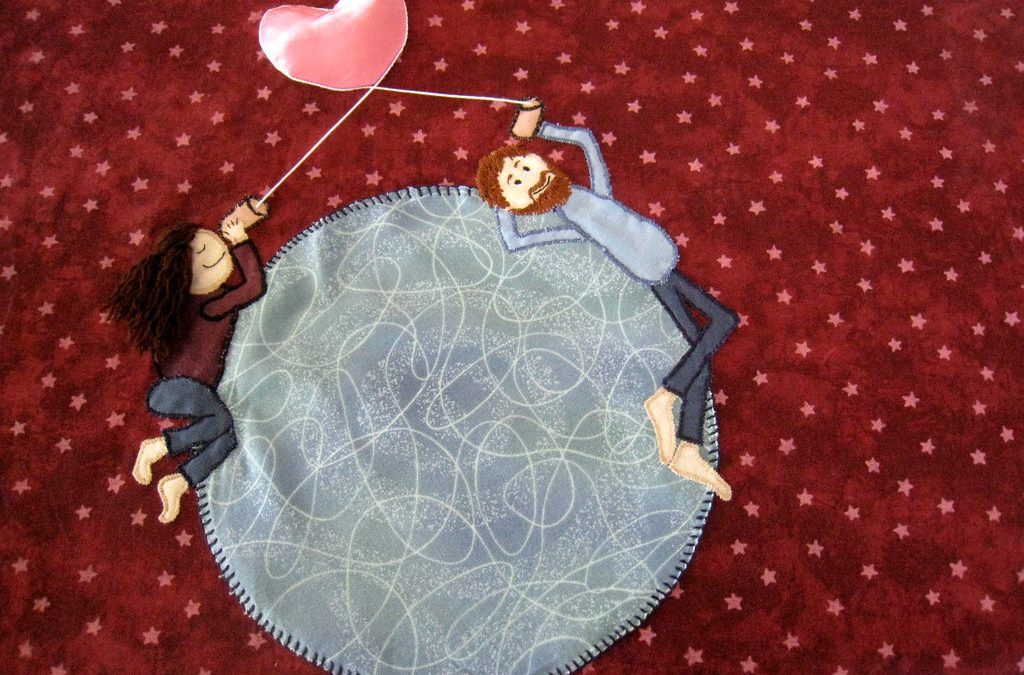Swami Chaitanya Keerti
There are friends and there are enemies–and there are brothers, sisters, and other relations. We see them loving each other and there are moments when they are ready to die for each other; and then there are moments when they are full of hate for each other–so much so that they can kill each other. Strangely, they happen to be the same people who were in love and now they hate and kill each other. The sudden changes from love to hate and in rare cases, from hate to love, makes us wonder how and why this happens. It happens between husbands and wives, girl-friends boy-friends and all such relationships. Happy Ho organizes best Meditation and Tarot classes in Noida and Delhi NCR area in India.
I have heard a joke:
The butcher and the milkman were discussing the pros and cons of married life. “Do you really believe it is better than being single?” demanded Weiss, the butcher.
“In a way,” said the milkman, who was fond of philosophising. “After all, if it were not for marriage, we would have to do all our fighting with strangers.”
When man and woman decide to live together as a couple, their feminine and the masculine energies melt into each other–this is a natural happening. In the beginning, when they are in love, they care more for each other and the love between them is given more value. But gradually, and in some cases very fast, the continuity of living together brings up so many other things which were never there in the beginning. Things start becoming complicated because life has so many other dimensions also, which are beyond the nature of the physical dimension. They both have a certain way of thinking, emoting and feeling, which is very individual and causes conflicts. Very soon they start behaving according to their individual likes and dislikes. They start judging the behaviour and actions of each other. The natural love becomes overpowered by conflicts and a certain sense of insecurity starts creeping into their mind and being. The fear takes over. In this state of fear, they start dominating each other, without respect for the freedom of the individual.
Happy ho offers best tarot reading training in Noida Delhi/NCR
Osho explains: Domination is a sort of hatred, anger, enmity. How can you even think of dominating a person you love? You would love to see the person totally free, independent; you will give him more individuality. That’s why I call it the greatest paradox: they are together so much so that they are almost one, but still, in that oneness they are individuals. Their individualities are not effaced; they have become more enhanced. The other has enriched them as far as their freedom is concerned. Osho ( Tantric Transformation: When Love Meets Meditation)
Besides the marriage and live-in relationships, there is so much conflict in other relationships also. And this conflict starts developing very early in childhood when the children observe that they are not getting enough love or attention from parents, while their younger/elder brother or sister is getting all the love and attention. Such situations can create inferiority complex or self-pity in children, and they could become violent also. The same can happen in school-class rooms also.
This conflict that begins very early in life overshadows the rest of the life of each individual. This is very unhealthy and toxic beginning of life for the kids and between the brothers and sisters. This will lead to major conflicts and bitter rivalry in relationships. The psychologists say: Sibling rivalry is mainly about power struggle. According to Dr Albert Adler, a famous psychologist and well-known disciple of Sigmund Freud, “kid squabbling is really based on subconscious strive for power.” As parents love and nurture the tiny infant, he will develop positively and slowly learn to compete with his siblings, who are “vying” for a share of love and attention.
And there’s another dimension also– between parents and children and between siblings. A parent wants his or her child to do something and the child resists being controlled. If he cannot resist for some reason and does everything as expected, he or she will keep shimmering, feeling bitter and will take revenge in the future whenever possible.
What is the solution? How to deal with children in such situations? The first point to understand is to accept the child in his uniqueness, appreciate his individuality without any judgment. “Judge Ye Not”–remember 3 famous words of Jesus, who declared to the world: You cannot enter into my kingdom of God unless you become children again. Children are simple and simple things work for them.
Osho shares his insights: “The mother may love one child more, another a little less. You cannot expect that she should love absolutely equally; it is not possible. Children are very perceptive. They can immediately see that somebody is liked more and somebody is liked less. They know that this pretension of the mother’s loving them equally is just bogus. So an inner conflict, fight, ambition arises.”
We have to acknowledge that each child is different. Somebody has a musical talent, somebody does not. Somebody has a mathematical talent and somebody has not. Somebody is physically more beautiful than another or one has a certain charm of personality and the other is lacking it. Then more and more problems arise, and we are taught to be nice, never to be true.
If children are taught to be true, they will fight it out, and they will drop it by fighting. They will be angry, they will fight and say hard things to one another, and then they will be finished, because children get rid of things very easily. If they are angry, they will be angry, hot, almost volcanic, but the next moment they will be holding each other’s hands and everything will be forgotten. Children are very simple, but often they are not allowed that simplicity. They are told to be nice, whatever the cost. They are prohibited from being angry at each other: “She is your sister, he is your brother. How can you be angry?”
Osho concludes: Remain flexible with the child. This flexibility of attitude has many dimensions. Don’t fix the child into “monogamous” attitudes. Don’t say to the child, “Love me because I am your mother.” It may create an incapacity in the child, and he will not be able to love anyone else. Then it happens that grown-up children — I call them grown-up children — continue to be fixed. So you cannot love your wife because deep inside you can love only your mother. But your wife is not your mother and your mother cannot be your wife, so you continue to be fixed — a mother fixation. You continue to be fixed! You go on expecting things from your wife as if she is your mother — not consciously. If she does not behave like a mother, then you are not at ease. And the problem becomes more complex. If she begins to behave like a mother, then too you are not at ease because she must behave like your wife.





